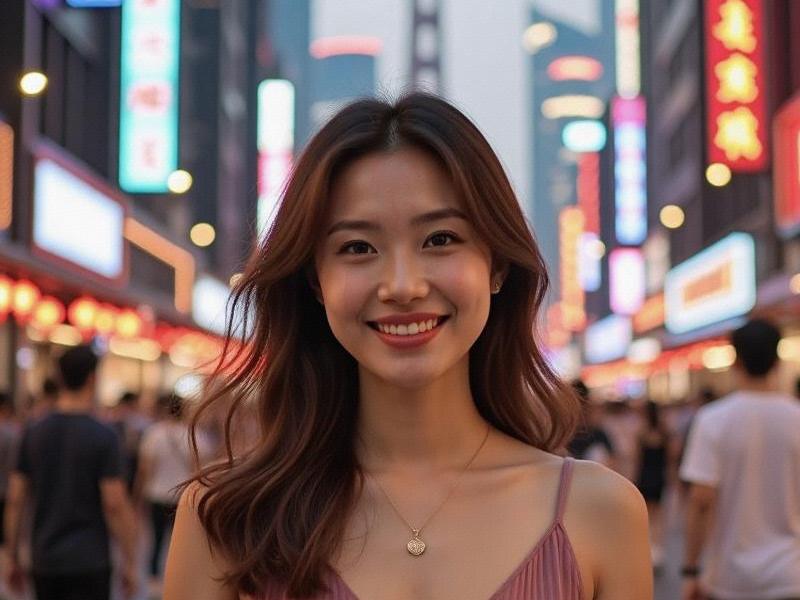The Shanghai Modern Woman: Redefining Femininity in China's Global Metropolis
⏱ 2025-07-01 02:32 🔖 上海龙凤419
📢0℃

In the neon glow of Nanjing Road, among the heritage shikumen houses, and within the glass towers of Pudong, a quiet revolution is unfolding - the rise of the Shanghai Modern Woman. These daughters of China's most international city are redefining what it means to be female in contemporary Chinese society.
"Shanghai women have always been different," explains Professor Chen Lihua of Fudan University's Gender Studies department. "Historically, they were China's first female factory workers, the first to wear qipao dresses with Western heels. Today, they're pioneering new models of work-life balance." Her research shows Shanghai leads China in female entrepreneurship (38% of startups) and advanced degrees among women (52% of postgraduate students).
爱上海同城对对碰交友论坛 The financial district tells part of the story. Meet Zhou Yuxi, 29, one of the youngest portfolio managers at a major international bank. "My grandmother couldn't read; my mother was a textile worker; I trade derivatives," she says between meetings. Like many Shanghai professionals, Zhou navigates complex cultural expectations - pressured to marry but unwilling to sacrifice hard-won career gains. "We call it 'having it all, just not all at once,'" she laughs.
Fashion offers another lens. Shanghai's streets showcase a unique sartorial fusion - silk scarves with tailored suits, vintage Mao jackets paired with designer handbags. Local designer Zhang Mei explains: "Shanghai style is about confidence, not following trends. Our women mix high and low, East and West." Her boutique in the French Concession caters to clients who value individuality over logos.
上海龙凤419社区
This independence comes with challenges. Despite progressive policies (Shanghai offers China's most generous maternity leave), many professional women face subtle discrimination. "They call us 'shengnu' - leftover women - if we're not married by 27," complains tech entrepreneur Li Na. "But Shanghai is changing this narrative." Her women-focused coworking space, The Jade Room, provides childcare and networking for female professionals.
上海喝茶群vx The arts scene reveals another dimension. At the Power Station of Art, curator Fang Ting showcases female artists exploring identity through mixed media. "Shanghai women artists don't just react to Western feminism - they're creating their own vocabulary," she says, standing before an installation blending traditional embroidery with digital projections.
Perhaps most remarkably, Shanghai's older women are rewriting retirement. In Fuxing Park at dawn, groups of silver-haired women practice tai chi, then gather for coffee at nearby cafes. "We fought for China's modernization," says 68-year-old former teacher Wang Liling. "Now we're enjoying the fruits - book clubs, travel groups, even dating apps for seniors!"
As Shanghai positions itself as a global capital, its women stand at the crossroads of tradition and innovation. They're crafting a new Chinese femininity - one that honors heritage while embracing boundless possibility. In doing so, they're not just changing Shanghai - they're redefining what it means to be a modern Chinese woman.
The Reinvention of Shanghai's Entertainment Venues: Where Business Meets LeisureThe Shanghai Economic Circle: Redefining Urban Development in the Yangtze River Delta【长三角特别报道】"一小时都市圈":上海与周边八城的共生密码Shanghai's Entertainment Clubs: A New Era of Nightlife and Cultural Fusion"Silicon Bund: How Shanghai Invented the 22nd Century's Urban Language"The Dual Pulse of Shanghai: How China's Financial Capital Masters the Art of Technological Leap Without Losing Its SoulShanghai Chic: The Evolution of Beauty Standards in China's Global City【霓虹背后的转型:上海高端娱乐会所行业观察】"Crypto Cabarets: Inside Shanghai's Blockchain-Powered Nightlife Revolution"Neon Renaissance: How Shanghai's Entertainment Clubs Redefined Luxury Nightlife in 2025
【水岸重生录】苏州河下游的沪苏双城实验【夜上海浮世绘】"百乐门"传奇:探秘民国第一舞厅的世纪沉浮【流金岁月】上海名媛的世纪审美革命【时代镜像】上海女子的千面风华:从月份牌美人到数字缪斯的百年嬗变"的格式要求
- 标题、关键词、描述、内容四部分缺一不可
- 内容要体现新闻专业性
- 需要包含上海及周边元素
- 文章要有深度和可读性
3. 注意事项:
- 避免生成调查报告
- 保持新闻的客观性和专业性
- 可以适当融入历史元素
- 确保内容真实可信
- 从文化、社会、经济等角度切入
- 注意上海与周边区域的联动关系
以下是为您准备的上海及周边主题深度报道:【城市记忆】亭子间与智慧社区:一个国际大都市的市井基因解码【摩登密码】从月份牌到元宇宙:上海女性的百年形象进化论【夜上海进化论】从百乐门到量子酒吧:解码都市夜生活的文化基因【大上海都市圈进行时】2025沪苏浙皖同城化生活全景图【魔都密码】从外滩到元宇宙:解码上海城市基因的五重奏

